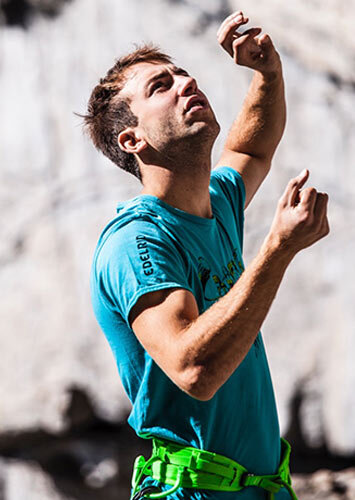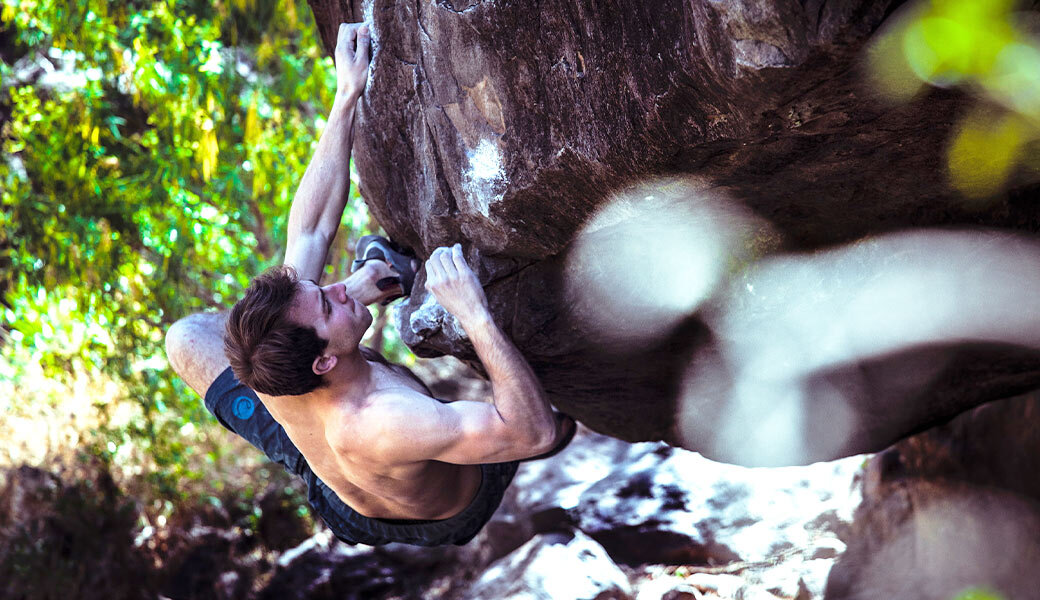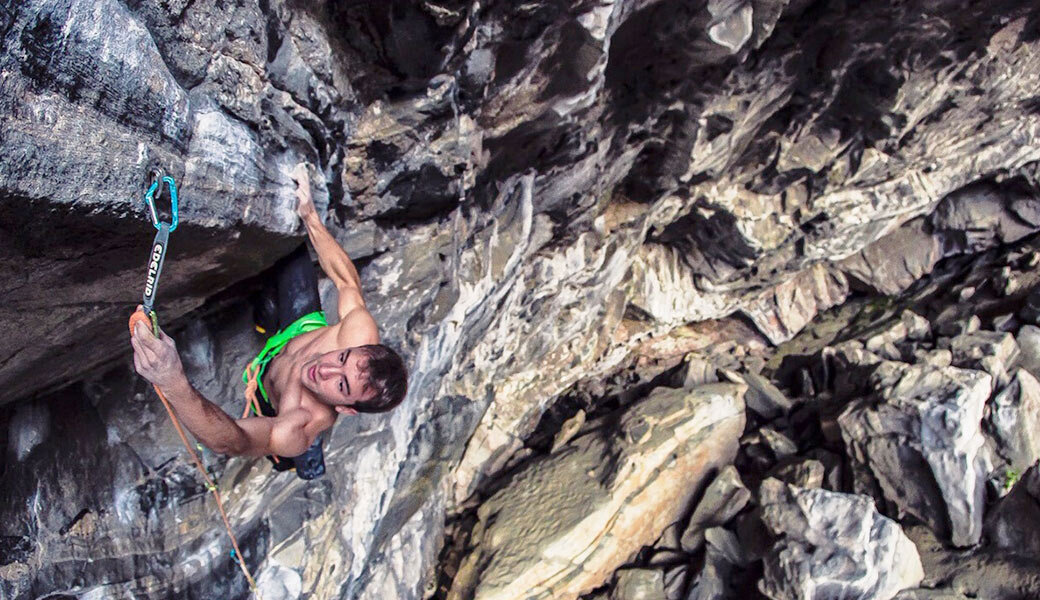When and how did you get into climbing and what kept you interested / fascinated in the sport?
Being born in southern Argentina, in Patagonia, nature and mountains have been a part of my life since the beginning, and I always felt they were the right place for me. I discovered climbing through my sister, who used to climb with her boyfriend. So I got hooked early on and I've been climbing ever since. I've always been fascinated by the movement, by the need to find and solve new sequences and improve my technique. The mental challenge of constantly facing new problems has been the main motivation in my climbing life so far, and the fact that I can now make a living out of this makes me feel really lucky.
Who was your childhood hero and do you consider yourself a role model now? Does it influence you at all that other people look up to you?
The first climbers who inspired me and to who I looked up to were Ramón Julian and Edu Marin, two examples of how discipline and hard work have a reward. Along with Marco Jubes, I think they have been my role models, besides being good friends and outstanding climbers. They have taught me much and they've helped me become the climber I am today.
If now I have become a role model to other people, I think that would be more of a consequence rather than a goal that I set myself to. And I guess that's a good thing, because if I was able to learn positive values from Ramón, Edu and Marco, maybe now I can pass these values to other people. And this is something that makes me really happy, although it was never my intention to become anyone's role model.
What were the most important milestones in your life so far, both in climbing and in everyday life? Did you immediately recognize them as such or only later on?
Finishing high school, when I moved to Catalunya, my first competition in 2010, when I started route setting internationally outside of my country and team up with Edelrid. I recognized most of these steps almost immediately as milestones because, in my mind, they were the right steps I had to take to make the dream of spending my life following my passion come true.
For example finishing high school gave me more freedom with my schedule. Catalunya is a paradise for climbing, competitions have connected me to a lot of people, they have taught me a lot and have made me train hard and push my limits. And have support of a great company like Edelrid gives me the resources I need to complete the puzzle.
What were your greatest failures / setbacks / injuries? How did you cope with them and how did you come back from them?
After an incredible 2015, I decided to finish the year and start 2016 climbing with my friends in Siurana. While I was climbing hard and not having had a proper warm up, I injured my right forearm and one finger. It has been my worst injury so far and I had to spend many months in rehabilitation, but thanks to Felix Obrado's -my physiotherapist- help and patience, I was able to recover. Were hard times but for sure the most important



